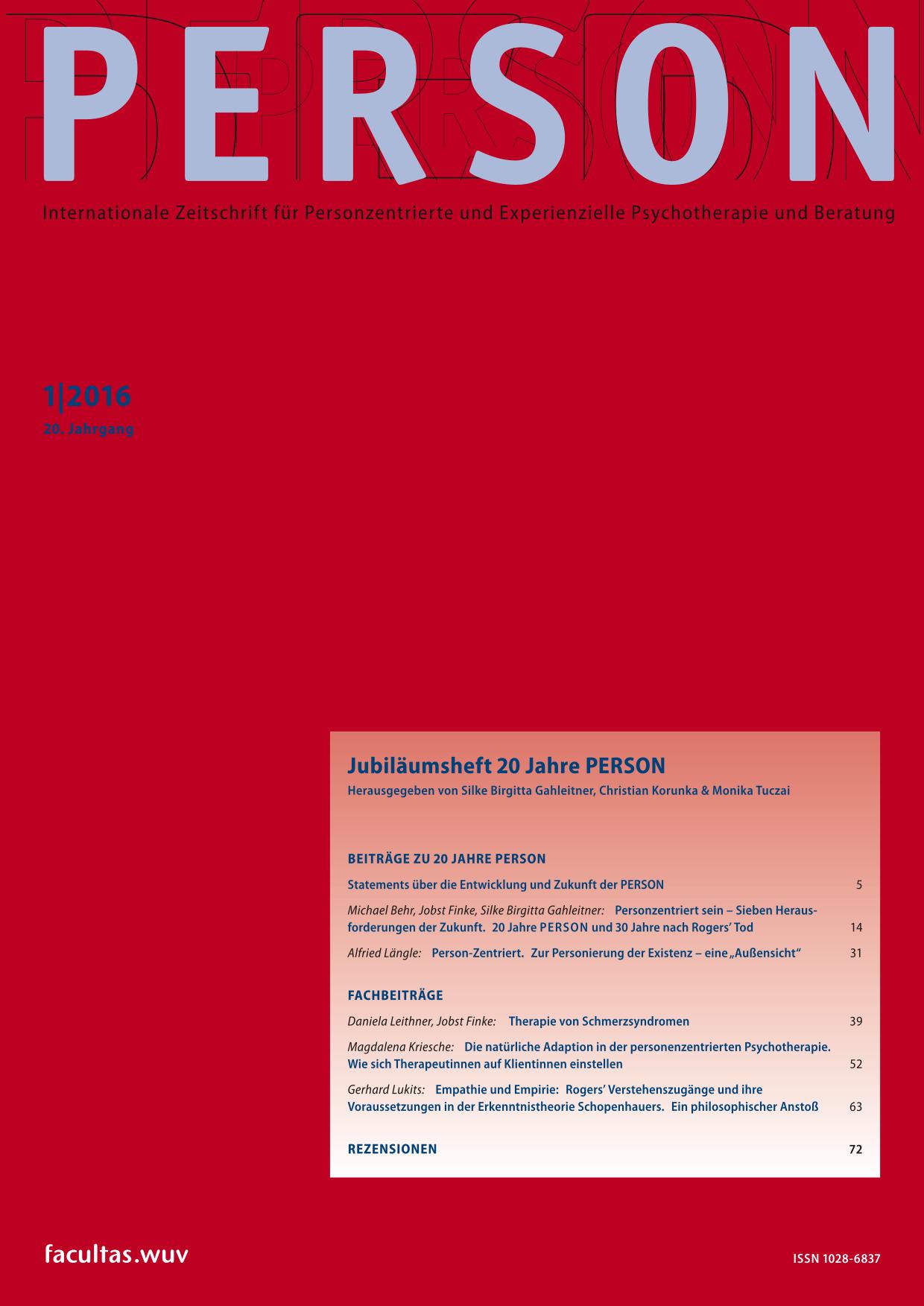Empathie und Empirie: Rogers’ Verstehenszugänge und ihre Voraussetzungen in der Erkenntnistheorie Schopenhauers Ein philosophischer Anstoß
Main Article Content
Article Sidebar
Abstract
Empathy and Empiricism. Rogers’ methodology and it’s foundation in the epistemology of Schopenhauer. A philosophic impulse. In the following article the author attempts to sketch a possible epistemological fundament of the Person Centered-Approach. He aims to show that significant schools of thought found to have influenced Rogers, refer to the philosophy of Schopenhauer. So, aside from all differences in other respects, remarkable analogies would have occurred between Schopenhauer and Rogers, where it’s about a fundamental dichotomous structure of the human reality and possible accesses to it. According to that Schopenhauer’s two levels of reality, ‘will’ and ‘representation’, can be found in Rogers’ theoretical theses on ‘actualization tendency’ (or a ‘formative tendency’) and the ‘concept of self’. Did Rogers also, without delving too deeply into Schopenhauer, reunite these aspects of his philosophy, which were separated by schools succeeding him? In so doing Rogers would have developed a theory, which, in its most basic form, resembles Schopenhauer’s and also stands out for its unbiased approach to fundamentally different perspectives that, methodologically speaking, equate to empathy and empiricism. Thus Schopenhauer’s philosophy might be useful for an understanding of these corresponding areas of the Person Centered-Approach. For „… confusion arises only when one is not clear as to the type of knowledge which is being specified.“ (Rogers, 1959, p. 212)
How to Cite
Downloads
Article Details
Empathy, Methodology, Concept of Self, Actualization Tendency, Schopenhauer

